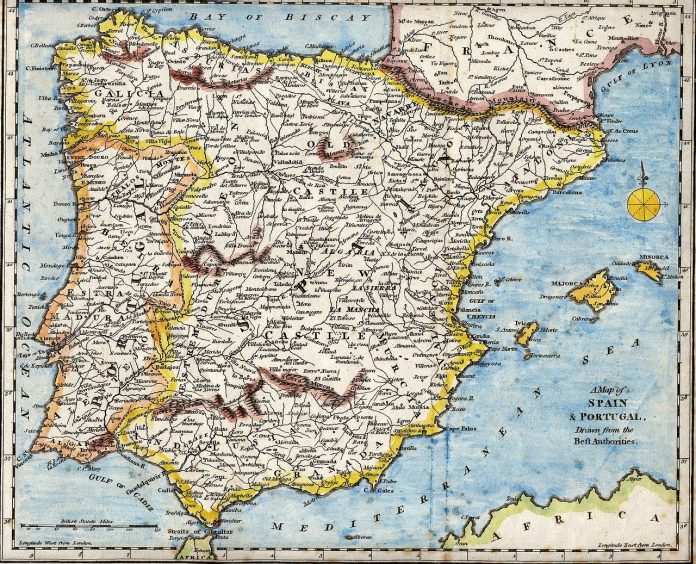Last summer, Spaniards went to the polls in a national election that European conservatives regarded with great expectations. Ruling socialist PSOE, after several years of radical policies, was about to be punished by a Spanish Right reinvigorated by the firebrand conservative VOX party. VOX was poised to help centre-right PP rule in coalition and condition government policy towards conservative values, for years to come.
VOX however underperformed from its previous 15% down to 12%. On the contrary, the ruling PSOE actually gained 4%, which practically tied it to PP’s 33%. VOX’s losses together with the extinction of the liberal Ciudadanos, precluded PP from forming a governing coalition but this was partly a self-inflicted defeat since PP had been extremely harsh on VOX throughout the election and during the debates, thereby succeeding only in undermining its own potential allies. PSOE’s Pedro Sánchez, on the other hand, courted his far-left satellites and was able to further complement his coalition with Catalan separatists.
Conversely, the Portuguese election results of March 2024, saw centre-right PSD and its allies tying with the ruling Socialist Party by merely repeat its electoral outcome of two years ago (29%) and the unabashedly Right-wing CHEGA! (CH) rise from 7% to 18%. In other words, CH is now an absolute kingmaker in the Portuguese political system and PSD – after having declared many a red line and quarantine against CH – now finds itself between a rock and a hard place.
This means that while Portuguese conservatives were late to arrive on the scene compared to VOX – preceding CH by five years – they are now the Iberian reference of conservatism both in national implementation as well as institutional weight.
Such a scenario is all the more incomprehensible considering that while both countries transitioned from dictatorship in the 1970s, the Spanish Right succeeding in refounding Spain as a monarchist capitalist society, while the Portuguese Right emerged from the Marxist Carnation Revolution completely subservient to the Left and to the new socialist regime in place. Apart from a more favourable ecosystem, VOX’s Santiago Abascal also enjoyed a far more salient electoral platform than CH given that socialist Pedro Sánchez has been a shameless gender ideology accelerationist in Spain’s education system, that it chose to coalesce with outright separatists, not to mention that it facilitated mass illegal immigration from Islamic countries. Comparatively, CHEGA!’s André Ventura has had to make do with the issue of corruption and the somewhat more subdued problems posed by mass immigration from the Portuguese speaking southern hemisphere.
Sociologically, the two parties are extremely similar with both appealing to middle class suburban males. Therefore, what is behind the impact differential between the two?
An immediate and obvious difference is the context of their direct rivals. PP has taken care to protect its right flank with figures such as Madrid mayor Isabel Díaz Ayuso not hesitating to ally with VOX and denouncing the Left as ‘evil’. PSD, in contrast, made it a point to release a reel with a member of its youth league members affirming the party’s commitment to ‘gender equality’, abortion rights and promoting the gender pay gap myth. This means that PSD has made it much easier for CH to fill the ideological vacuum on the Right than PP has for VOX.
Looking at the substance, there is one other aspect which differentiates the fraternal political forces. Perusing the biographies of VOX’s deputies and leaders, one finds a wide panoply of academics and urban businessmen which reflects a professionally led and managed party, unsurprisingly echoing its PP roots. To the contrary, André Ventura has carefully curated CHEGA!’s deputies, seemingly, to have them reflect not Portuguese elites but the Portuguese people. They tend to be suburban, middle class, and they look and speak like the average Portuguese citizen. While not to the liking of the intellectual coterie of the regime or worthy of the approval of the journalistic intelligentsia, Ventura’s strategy may very well be garnering a far more instinctive empathy on the part of the Portuguese electorate.
Does the conservative Right not require an ‘intellectual vanguard’?
Miguel Nunes Silva is the Director of Portugese think tank Trezeno Institute, and a local councilman affiliated with Portugal’s third largest political party.
Disclaimer: www.BrusselsReport.eu will under no circumstance be held legally responsible or liable for the content of any article appearing on the website, as only the author of an article is legally responsible for that, also in accordance with the terms of use.




